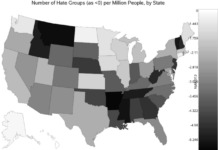Exactly six months before 2018 mid-term elections, the White House has eliminated from the National Security Council an integral position charged with developing policy to defend the United States against cyber warfare and cyber election hacking.
National Security Adviser, John Bolton, stated via memorandum the position of cybersecurity coordinator is no longer necessary because lower-level officials have already made cybersecurity a “core function” of the Donald Trump’s national security team.
As a result, Democratic congressmen, Reps. Jim Langevin (D-RI) and Ted Lieu (D-CA) have introduced a bill to permanently reinstate the position.
In a statement Wednesday, Rep. Lieu said:
“The decision to eliminate the top White House cyber policy role is outrageous, especially given that we’re facing more hostile threats from foreign adversaries than ever before. This move impedes our country’s strategic efforts to counter cybersecurity threats against our country. Fortunately, our bill will fill in those holes in government cybersecurity oversight by creating a National Office for Cyberspace in the White House. A coordinated effort to keep our information systems safe is paramount if we want to counter the cyber threats posed by foes like Russia, Iran and China. To do anything less is a direct threat to national security.”
Because of cybersecurity challenges facing the country, Rep. Langevin argued the country needs a “designated expert to harmonize cyber policy…whether during major incidents or when establishing norms of responsible state behavior in cyberspace.”
He added:
“We have had three excellent cybersecurity coordinators since the late Howard Schmidt originated the position. It is an enormous step backwards to de-emphasize the importance of this growing domain within the White House.”
Sen. Mark R. Warner (D-Va.), ranking Democrat on the Senate Intelligence Committee, tweeted:
“I don’t see how getting rid of the top cyber official in the White House does anything to make our country safer from cyber threats.”
In March, the United States imposed sanctions on 19 Russian individuals and five groups that include Moscow’s intelligence services, for cyber attacks and interfering with the 2016 presidential election.
The sanctions target the Russian nationals special council Robert Mueller charged on February 16 for tampering with our elections, the Russian Federal Security Service (FSB), the Russian Main Intelligence Directorate (GRU), and six individuals working for GRU.
But hackers successfully infiltrated other critical infrastructure.
A Treasury Department statement asserts:
“[Russian government hackers] have also targeted U.S. government entities and multiple U.S. critical infrastructure sectors, including the energy, nuclear, commercial facilities, water, aviation, and critical manufacturing sectors.”
The FBI and the Department of Homeland Security (DHS) issued an alert confirming the cyber-attack began last March. They urged other organizations to review cyber security measures.
The alert warned:
A senior administration speaking on condition of anonymity, said:
“It is the judgment of the DHS than Russian government cyber hackers were behind the hacking of organizations in the energy sector. We were able to identify where they were located within those business systems and remove them from those business systems.”
Rep. Adam Schiff (D-Calif.), the House Intelligence Committee’s top Democrat argued the sanctions do not go far enough given the Russian assault’s scope and impact on the election.
Schiff said in a statement:
“The sanctions today are a grievous disappointment, and fall far short of what is needed to respond to that attack on our democracy, let alone deter Russia’s escalating aggression, which now includes a chemical weapons attack on the soil of our closest ally.”
Schiff added the Obama administration had already authorized many of the sanctions, and argued the new sanctions are simply because of Robert Mueller’s investigation into possible Trump ties to Russia.
He said:
“It appears that Mr. Mueller is doing more to place consequences on Russia’s behavior than the rest of the administration.”
In January, President Trump refused to implement Russian sanctions Congress compelled him to sign into law.
This should come as no surprise now as the Senate Intelligence Committee on Wednesday confirmed its original assessment that Russia interfered with the 2016 presidential election to tip the scales for Donald Trump.
https://www.youtube.com/watch?v=Q0uz-5r1kck&disable_polymer=true
Image credit: Willis Towers Watson Wire





